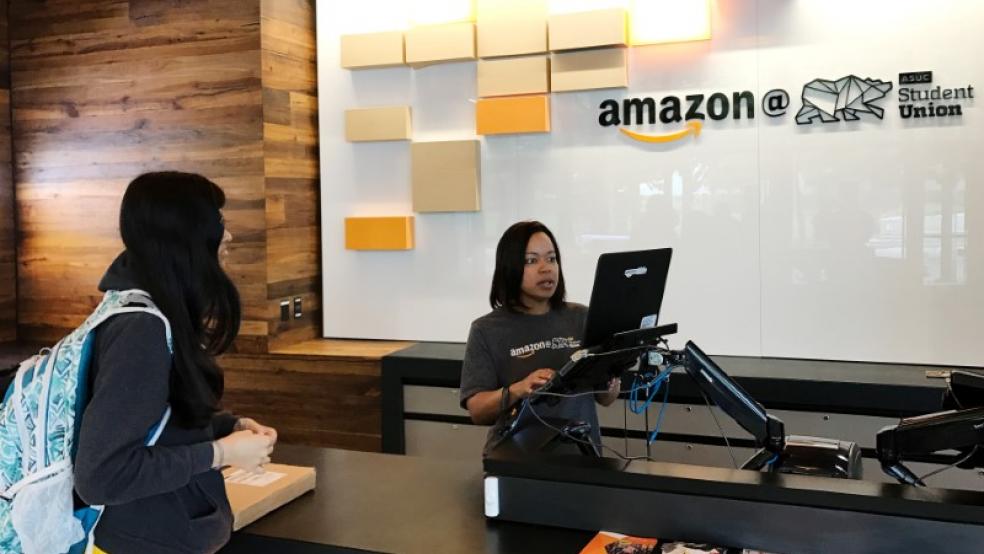Amazon announced on Tuesday that it will raise its minimum wage for all employees to $15 an hour effective next month — and will work to build congressional support for raising the federal minimum wage of $7.25.
Amazon’s pay increase will benefit more than 250,000 employees and 100,000 seasonal workers, the company said. The median Amazon worker was reportedly paid $28,446 last year, or about $13.68 an hour, though Amazon says that figure includes part-time workers and those outside the United States. It says the median salary for full-time U.S. employees is $34,123.
The backstory: The company — and in particular founder and CEO Bezos, by far the richest person in the world — have come under intense scrutiny for what critics called poor working conditions at its warehouses and problematic pay standards that failed to provide a living wage for many employees.
Sen. Bernie Sanders (I-VT), a harsh and frequent critic of both the company and its CEO, last month introduced a bill co-sponsored by Rep. Ro Khanna (D-CA) called the Stop Bad Employers by Zeroing Out Subsidies (Stop BEZOS) Act. It would tax large employers $1 for every $1 that their low-wage workers receive in federal benefits like food stamps and Medicaid. “We do not believe that taxpayers should have to expend huge sums of money subsidizing profitable corporations owned by some of the wealthiest people in this country,” Sanders said at the time.
Why Amazon is raising wages: Amazon pushed back against Sanders’ accusations, and the Sanders bill was widely criticized, including by analysts on the left who feared it would incentivize companies to pull back on hiring workers who would qualify for federal assistance programs. But the public criticism and political pounding evidently played a part in Amazon’s decision. Bloomberg News’ John Lauerman and Jeremy Kahn says Bezos blinked.
“We listened to our critics, thought hard about what we wanted to do and decided we want to lead,” Bezos said in a statement Tuesday. “We’re excited about this change and encourage our competitors and other large employers to join us.”
The decision is also a smart business and public relations move for Amazon. “It makes good business sense,” writes Bloomberg columnist Shira Ovide, “for Amazon to keep its worker army from defecting and to blunt criticism that Amazon is the bad guy of retailing.” Loop Capital Markets analyst Anthony Chukumba told Bloomberg News that the hike will add $1 billion to $2 billion in costs. “It may sound like a lot of money,” he said. “But in the context of how big Amazon is, it doesn’t move the needle a whole heck of a lot.”
In the context of worker paychecks and U.S. politics, though, the impact is already sizable. Sanders, for example, praised Amazon’s decision. "Today I want to give credit where credit is due. And I want to congratulate Mr. Bezos for doing exactly the right thing,” he said in a statement.
Why it matters: Other companies, including Walmart, Target and Costco, have announced that they’re raising workers’ wages over time, but the announcement by Amazon, the second-largest private employer in the U.S. behind Walmart, could have an outsized impact, especially if the internet behemoth puts its lobbying muscle behind a federal minimum wage increase. “What Mr. Bezos has done today is not only enormously important for Amazon’s hundreds of thousands of employees, it could well be a shot heard around the world. I urge corporate leaders around the country to follow Mr. Bezos' lead,” Sanders said in a tweet.





